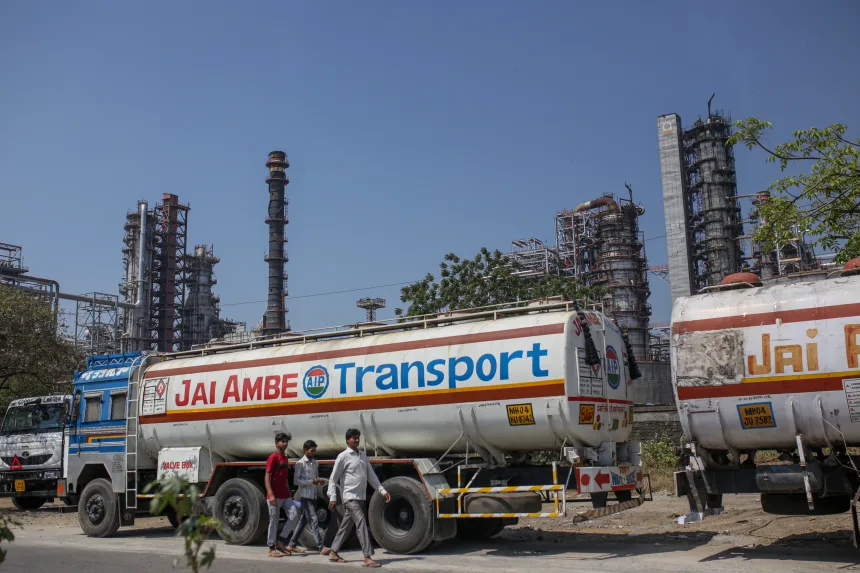Now Reading: Trump’s Toughest Sanctions Yet Threaten Russia’s Oil Lifeline — But China and India Hold the Power
-
01
Trump’s Toughest Sanctions Yet Threaten Russia’s Oil Lifeline — But China and India Hold the Power
Trump’s Toughest Sanctions Yet Threaten Russia’s Oil Lifeline — But China and India Hold the Power

US President Donald Trump’s sweeping sanctions on Russia’s two largest oil giants, Rosneft and Lukoil, are shaking global energy markets — but their real impact may depend on how China and India respond.
Both Asian powerhouses — which together import up to 4.5 million barrels of Russian oil daily — are under pressure to choose between cheap crude and compliance as a November 21 deadline looms.
According to energy insiders, several Chinese and Indian refiners have already paused or canceled Russian orders, fearing US secondary sanctions that could restrict their access to global finance.
Analysts estimate that between 1.4 and 2.6 million barrels per day of Russian exports to India and China could dry up when the measures take effect. That could deal a blow to the Kremlin’s war chest — but experts caution that Moscow’s “shadow fleet” of tankers and middlemen could keep oil flowing through secretive channels.
“India is in a tougher spot,” said Clayton Seigle, an energy and geopolitics analyst at the Centre for Strategic and International Studies. “It’s hooked on discounted Russian barrels. Switching back to Middle Eastern or US oil would cost far more.”
China, meanwhile, is expected to tread carefully, avoiding direct confrontation with Washington while quietly ensuring its own energy security. “China won’t abandon Russia,” said Yun Sun of the Stimson Center. “But it will act cautiously to protect its big oil firms.”
India faces a diplomatic dilemma. Its historic ties with Moscow clash with its expanding strategic partnership with Washington, especially as both nations negotiate a new trade deal. Energy Minister S. Jaishankar hinted at frustration this week, saying global energy trade had become “increasingly constricted.”
Beijing’s challenge runs deeper. Maintaining its “no limits” partnership with Moscow could test its relationship with Washington and the West. Analysts suggest smaller, independent Chinese refiners — the so-called “teapots” — may continue to buy Russian crude through intermediaries, even as state firms scale back.
Despite years of Western sanctions, Russia has managed to sustain exports via a vast network of nearly 1,000 tankers operating under obscure ownership. This system — described by analysts as “laundering oil through the seas” — allows Moscow to disguise cargo origins and bypass restrictions.
“It’s mostly a game of rebranding,” said Muyu Xu, an oil analyst with Kpler. “The oil still moves — just under different names and routes.”
Still, experts warn the Kremlin will pay a price. Operating in the shadows raises transport costs, cuts profit margins, and forces Russian traders to sell at steeper discounts.
Ultimately, the sanctions’ success may rest not on Moscow’s evasion tactics — but on how aggressively Washington enforces them and how far Asia’s biggest buyers comply.
“The biggest X factor,” Seigle added, “is not what the traders do — but what Washington does next.”




